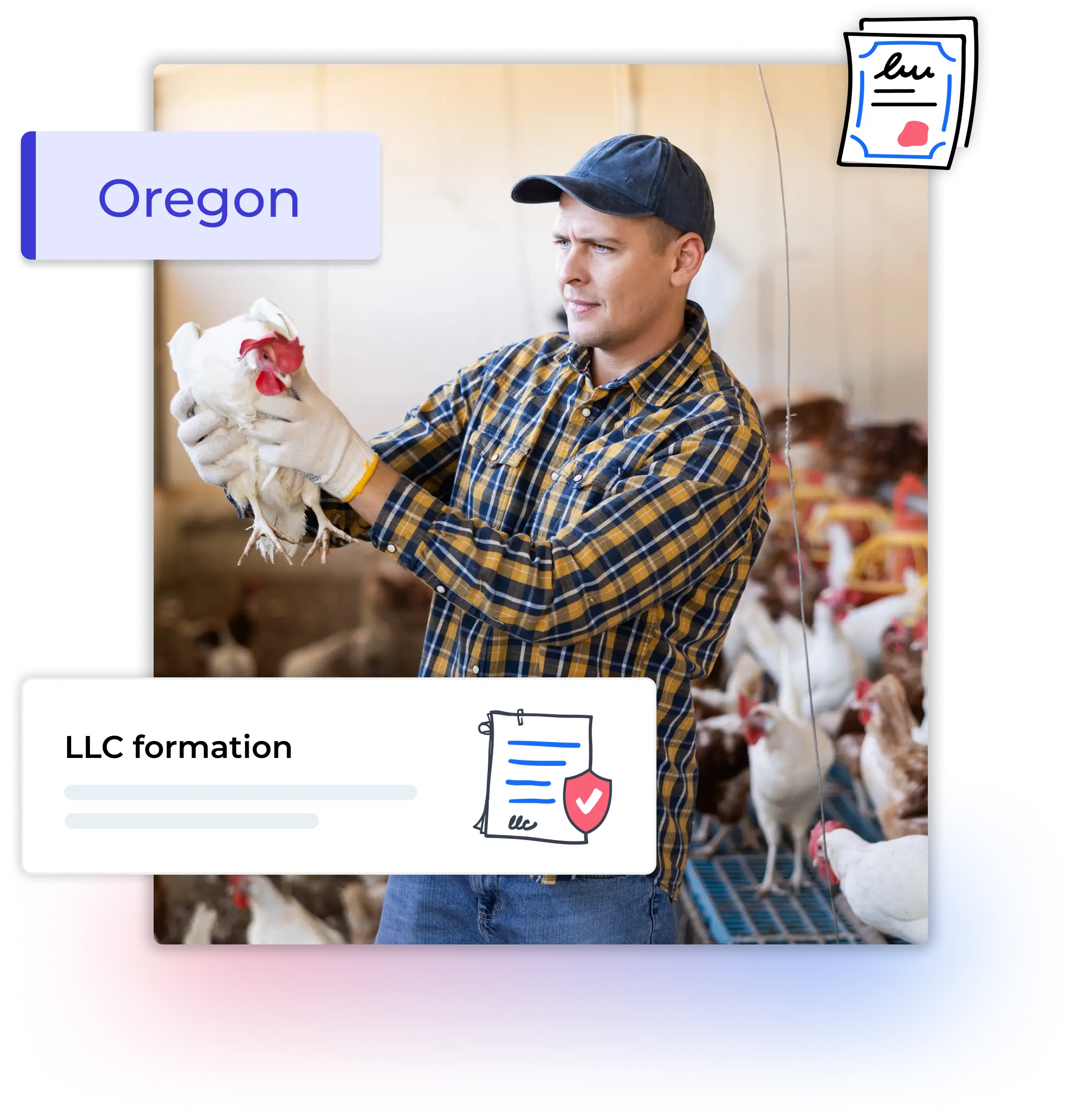Oregon LLC Formation: The Basics
This step-by-step guide details the steps and requirements you need to name your LLC in Oregon.
There are different costs to form an LLC in Oregon and maintain it. We’ve listed all of them in this post.
A registered agent is a mandatory step in your Oregon LLC formation process – learn more about it.
This post details which licenses and permits your Oregon LLC may require and how to obtain them.













